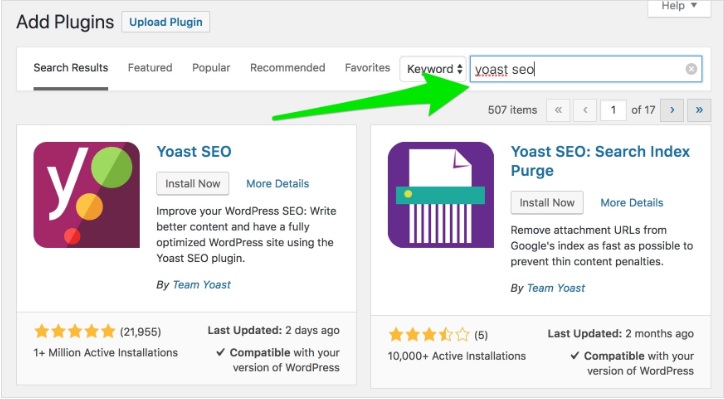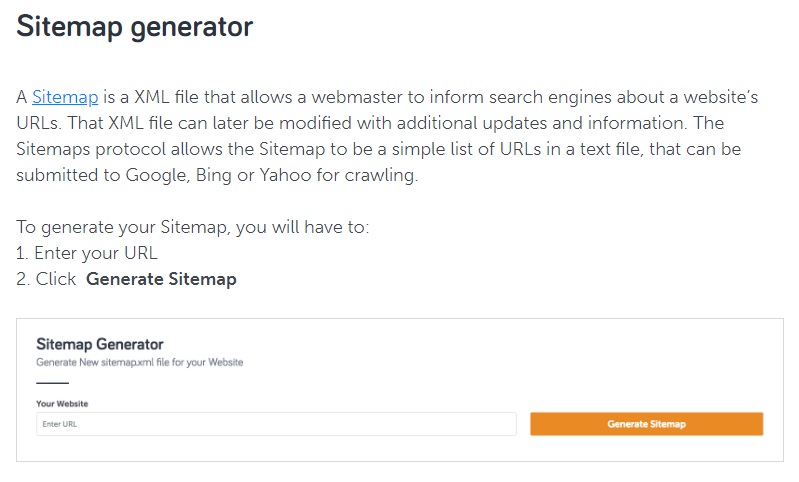Though once known primarily known as a blogging platform, WordPress has become a solid foundation for websites of all kinds. WordPress sites tend to rank well on Google and there are a number of built-in features that make it easy to customize and optimize your site. As SEO-friendly as WordPress may be, however, there’s still work you need to do to keep your site ranking well.
Understanding the basics of SEO is only one piece of the puzzle – you also need to know how to efficiently use the tools you have at your disposal. In this article, we’ll take a quick look at the SEO advantages WordPress has to offer and provide some simple tips to boost your rankings on WordPress.
What Makes WordPress Good for SEO?
The success of your website is dependent on traffic – if no one visits your site, no one will purchase your products or become exposed to your brand. Search engine optimization (SEO) involves making adjustments to your site to make it more visible to search engines and to your target audience. Search engines are responsible for scouring the internet to find the most relevant answers to a query. SEO tactics determine how likely your site is to appear on the results of those searches.
Fortunately, you don’t have to start from scratch when it comes to designing your website for SEO. WordPress has become an extremely popular platform because it is easy to customize, and it comes with a variety of built-in features perfect for SEO newbies.
Here are some of the built-in benefits WordPress offers for SEO:
- Easy to customize metadata. The metadata is what appears when a user scans the results page, so you want to make sure your title tags and meta descriptions are optimized – WordPress makes it easy to write and preview your metadata.
- No coding knowledge is necessary. You don’t need to know anything about coding to use a WordPress site – you simply upload content as a new post and customize it with your preferred theme. Though you don’t have to know any code yourself, WordPress creates HTML pages that are easy for search engines to understand.
- Customizable permalinks. A permalink is simply the full URL attached to any webpage. WordPress makes it easy to customize your permalinks to include keywords, making it easier for search engines and readers to understand them.

- Plugins to enhance site function. WordPress offers a wide variety of plugins that make it easy to customize and optimize the content on your site. Yoast offers an excellent tool for SEO optimization, scoring key elements of content including H1 tags, meta descriptions, and alt text.
- Optimized images and headings. Title tags and headings are extremely important for SEO, but WordPress makes it easy to use them without having to write any HTML code. It’s also extremely simple to add media and optimize it with alt tags and descriptions.
- Plenty of themes to choose from. The beauty of WordPress is its simplicity, but you can enhance your site easily by choosing from a wide variety of themes. Many themes are available for any industry, so you simply choose one that suits your site’s purpose.
- Fast loading times. In the newer versions of Google’s algorithm, user experience has become increasingly more important and load times play a role in determining whether a reader will stay on the page. WordPress pages have fast load times, especially if you use the right plugin.
In addition to these helpful features, WordPress automatically lets Google know each time you update your site. This causes your more recent posts to move upward in the ranking on SERPs. Though WordPress makes SEO easy in many ways, there are still some tips and tricks you can use to boost your rankings even further.
9 Simple Tips to Boost Rankings on WordPress Sites
When it comes to SEO, you can make things as simple or as complicated as you like. A few basic SEO tips are all you really need to get started with WordPress but once you’ve got things up and running, making enhancements will boost your SERP rankings.
Here are some simple tips to boost your rankings on WordPress sites:
- Make sure every page has a unique title tag and meta description. You’ll see this component on the “Add a Post” page and you can find a plugin that will walk you through the process of optimizing your metadata if you’re not sure how.
- Optimize your permalinks for new posts. WordPress automatically populates permalinks based on the post title, but it’s easy to change them. Make sure every page has a unique permalink that is easy to read and understand.
- Take a second look at your theme. When you’re first getting your WordPress site up and running, you probably want to choose a theme that looks good and suits your industry. If you want to boost your rankings, however, you may want to go back and choose something optimized for search engines.
- Update and optimize your content. Content is king when it comes to search engine rankings. High-quality, relevant content gets better rankings, so take the time to revisit your existing content and optimize it with the help of a WordPress plugin like Yoast SEO.

- Create an XML sitemap. In order for Google to index your website, you need to create an XML sitemap to help search engines understand your site structure. Make things easy by using the Google XML Sitemaps plugin on WordPress.
- Optimize your media for SEO. Images are an often-overlooked opportunity to boost SEO and WordPress makes it easy to take advantage of these opportunities. You can change the title, add a caption, and customize both the alt text and the description.
- Enable sharing on social media. Social media outlets like Twitter and Facebook have become essential elements in any successful marketing strategy. Add social sharing buttons to your site to drive traffic and optimize some of your content specifically for social media to enhance sharing opportunities.
- Be smart about linking. Search engines have evolved to use linking as a means of determining a site’s relevance. When linking to authoritative sites, use good anchor text instead of the overused “click here” and don’t forget to interlink within your own site.
- Rework your heading tags if needed. Quality content is essential, but it’s important to include keywords in your heading tags as well. WordPress makes it easy to highlight text and assign a heading tag – all you have to do is choose the text.
It takes work to build a successful website, but you don’t have to do all the work at once. The key to success with WordPress SEO is to utilize the built-in tools and to choose wisely from the available plugins. Optimizing your content as you upload it will save you a lot of hassle down the line, though you should still perform updates from time to time to boost your rankings and keep your content relevant.
A Word About Hosting
Though WordPress is a great tool to use in building your site, you still need to think carefully about what you use to host it. The host you choose impacts your site’s loading speeding which can affect your rankings. When shopping around for a hosting service, here are some things to look for:
- Good customer service. If you’re new to website building, you may want to look for a hosting provider that offers a lot of resources and customer support.
- Estimate how much traffic you expect. Most hosting providers charge based on storage and bandwidth, so think about how much traffic you expect your site to have and pay attention to pricing.
- Know the basics about servers. Inexpensive hosting is available on shared servers, but this may limit your ability to upload files and may restrict your access. If you want the room to grow, a cloud server may be a better option – you can customize your plan as you go along.
- Consider eCommerce options. If yours is an eCommerce site, you’ll want to choose a hosting platform optimized for online sales including shopping cart software and payment protections.
- Purchase your domain name. No matter what hosting provider you choose, it’s a good idea to own your own domain name. This ensures that you can change providers if needed.
Search engine optimization is not something you do once – it’s an ongoing effort to keep your site relevant and ranking well. WordPress offers an excellent platform for SEO beginners but also appeals well to those who have a little more experience. Use the tips you’ve learned here to make the most of your WordPress site and to start boosting your SERPs for improved conversions.
